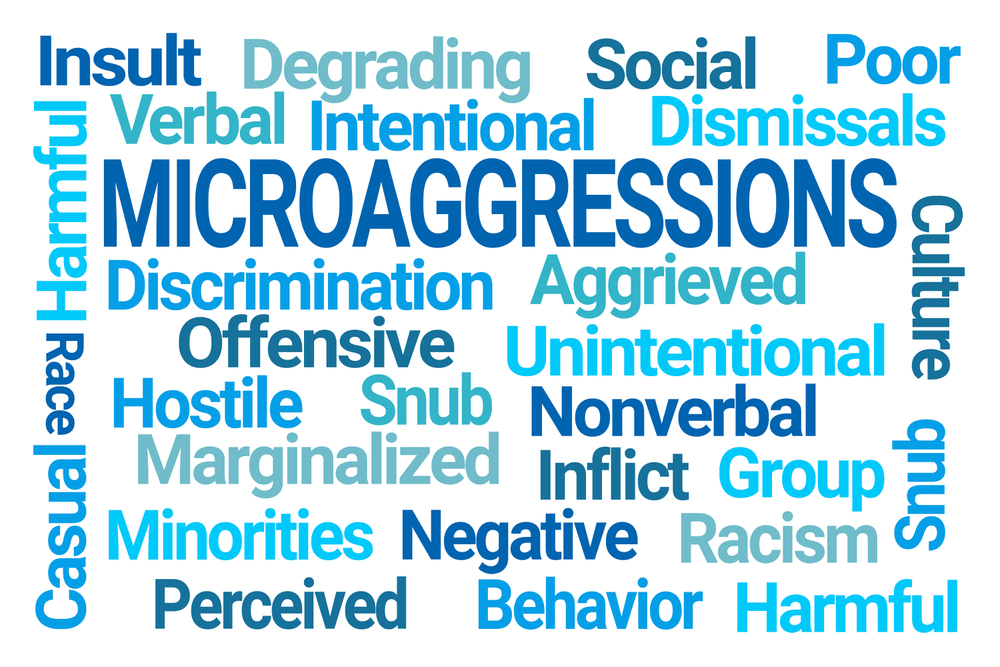 Perfectionism is characterized by the drive to appear, feel, and be perfect. It’s often driven by a fear of failure, feelings of unworthiness, low self-esteem, and adverse childhood experiences.
Perfectionism is characterized by the drive to appear, feel, and be perfect. It’s often driven by a fear of failure, feelings of unworthiness, low self-esteem, and adverse childhood experiences.
In 2022, I was one of five co-founders of the Canadian Psychological Association’s Section focused on Black Psychology and the Section’s Chair-Elect. This role has connected me with many Black and other racialized psychologists and students of psychology. Those perspectives and my career and executive coaching work have given me unique insights. One of my current preoccupations is whether perfectionism might be playing out differently for racialized people because our circumstances are often quite different from non-racialized experiences.
I’ve made a similar analysis for other constructs, for example, the impostor syndrome. I believe the impostor syndrome describes a valid experience, but I think it develops differently based on a person’s identity.
 Since there are relatively few Black or racialized psychology researchers who have looked into how perfectionism plays out for racialized people (and other members of equity-deserving groups), few would argue that the impostor syndrome is externally driven by how someone has been treated rather than strictly based on how they feel about themselves. Even though my observations have not been legitimized by research and the peer-review process, I see it routinely. As a self-employed organizational psychologist, I don’t package my applied research findings for psychology journals. Instead, I share what I learn in my blogs.
Since there are relatively few Black or racialized psychology researchers who have looked into how perfectionism plays out for racialized people (and other members of equity-deserving groups), few would argue that the impostor syndrome is externally driven by how someone has been treated rather than strictly based on how they feel about themselves. Even though my observations have not been legitimized by research and the peer-review process, I see it routinely. As a self-employed organizational psychologist, I don’t package my applied research findings for psychology journals. Instead, I share what I learn in my blogs.
Although rarely discussed, countless negative (and inaccurate) stereotypes have existed since the 16th century when the transatlantic slave trade started. Those stereotypes were created to help justify the dehumanization of enslaved African people. These stereotypes are incompatible with professionalism: lazy, ignorant/stupid, inarticulate, angry, submissive, and dishonest. These problematic stereotypes have been subtly (and not so subtly) and profoundly reinforced in films, television shows, news coverage, literature, policing policies, etc. Well-informed historians and folks who understand anti-racism, equity, diversity and inclusion know that these stereotypes were needed to justify the enslavement and exploitation of Black people during and after the trans-Atlantic slave trade (see this and this for more information).
 Again, all of this is happening in the subtext of daily life in Canada, the US, the UK and other countries, even though it’s not always articulated. With this backdrop, it is easy to see how working twice as hard feels necessary to “prove” oneself – especially as the first, one of few, or the only Black person in a workplace. In her speech to the graduates of Tuskegee University (a historically black institution located in Alabama), Michelle Obama reminded the graduates that:
Again, all of this is happening in the subtext of daily life in Canada, the US, the UK and other countries, even though it’s not always articulated. With this backdrop, it is easy to see how working twice as hard feels necessary to “prove” oneself – especially as the first, one of few, or the only Black person in a workplace. In her speech to the graduates of Tuskegee University (a historically black institution located in Alabama), Michelle Obama reminded the graduates that:
“their lives would likely be more difficult than their white peers simply because the playing field was still not equal. “The road ahead is not going to be easy. It never is, especially for folks like you and me … “So there will be times … when you feel like folks look right past you, or they see just a fraction of who you really are.”
Given what is at stake, it’s not surprising that many racialized people feel additional pressure to perform and dispel negative stereotypes. But it’s not always that simple.
Over the years, during keynote presentations, training sessions, and panels, I have spoken about Black and racialized excellence – and my ambivalence toward the construct.
In those sessions, I explain how most immigrants and children of immigrants understand the common trajectory or pipeline that starts with parents who immigrate to create a better life for themselves and their families. This requires a lot of sacrifice to “make it” and get established in the new country. The stakes are high, so it’s understandable that these parents have high, sometimes bordering on unrealistic expectations. The final stage is Black, brown, or Asian excellence. In many circles, this is so common for certain racialized people it’s become a cliché.
Now, finally, there is growing evidence from the racialized mental health communities that the burden of Black, brown and racialized excellence is quietly hurting a lot of capable and hard-working people.
The model minority myth is based on stereotypes, and it warrants some attention. It:
“characterizes Asian Americans/Canadians as a polite, law-abiding group who have achieved a higher level of success than the general population through some combination of innate talent and pull-yourselves-up-by-your-bootstraps immigrant striving” (Sarah-Soonling Blackburn, 2019).
 The model minority myth often pushes people of Indian, Pakistani, Chinese, Japanese, and other Asian countries to overwork and seek perfection.
The model minority myth often pushes people of Indian, Pakistani, Chinese, Japanese, and other Asian countries to overwork and seek perfection.
This quote from a 2017 National Public Radio (NPR) article provides a good overview of this problematic myth and some related implications:
“an old, well-worn trope: Asian-Americans, with their “solid two-parent family structures,” are a shining example of how to overcome discrimination … “Today, Asian-Americans are among the most prosperous, well-educated, and successful ethnic groups in America. What gives? It couldn’t possibly be that they maintained solid two-parent family structures, had social networks that looked after one another, placed enormous emphasis on education and hard work, and thereby turned false, negative stereotypes into true, positive ones, could it? It couldn’t be that all whites are not racists or that the American dream still lives?”
Although, in some respects, I centered the Black experience in this blog, I do believe there are parallels for other equity-seeking group members’ experiences with perfectionism. This September 2023 episode of the Armchair Expert with Dax Shepard featuring Prachi Gupta shows how perfectionism ultimately claimed the life of a promising man of South Asian descent.
So, although I value excellence, It’s not about whether we can be excellent but about whether we should … and at what cost. I have come to see excellence for racialized people as a double-edged sword.
I’ll go further and suggest that there’s a link between perfectionism and covering at work, that is downplaying aspects of yourself that you know are not welcome. I can see how perfectionism may be used by some people as a way to protect themselves from being discounted, overlooked, and underestimated.
 Having one’s accomplishments downplayed, ignored, or attributed to a quota (i.e., tokenized) rather than having them acknowledged is a frustrating and painful experience. Just as covering at work, may be a conscious or unconscious way to deal with mistreatment, it’s easy to see how perfectionism can be used as a strategy to try to escape the denial of one’s talents.
Having one’s accomplishments downplayed, ignored, or attributed to a quota (i.e., tokenized) rather than having them acknowledged is a frustrating and painful experience. Just as covering at work, may be a conscious or unconscious way to deal with mistreatment, it’s easy to see how perfectionism can be used as a strategy to try to escape the denial of one’s talents.
Over time, I do hope that there is more diversity and inclusion among university professors and graduate students. These are the people who produce most of the research. When the full spectrum of human experience is investigated, we’ll start to get better explanations and descriptions of the challenges that people are living with.
Did this article spark any career or leadership-related questions, plans or concerns?
Reach out today for a free and confidential initial consultation by phone, email, or via direct message on Twitter, Facebook or LinkedIn.
More than career coaching, it’s career psychology®.
I/O Advisory Services Inc. – Building Resilient Careers and Organizations TM.



